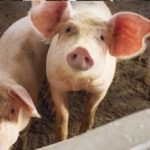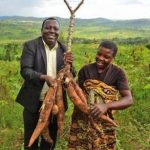
Experiences of smallholder farming amid COVID-19 in Zambia: a case of the Cassava Value Chain in Luapula Province
Reuters report that to deal with drier conditions brought by a shifting climate, farmer Pamela Nyirenda last year shifted to growing drought-hardy cassava, among other new water-sipping crops such as groundnuts and cowpea. But this year her cassava field has brought not just a secure harvest but also a financial windfall, as buyers snap up the tubers to produce ethanol for alcohol-based hand sanitiser.
As the coronavirus pandemic hits Africa, cassava flour in Zambia is this year selling for up to 5,000 kwacha ($270) a tonne, a steep rise from less than 2,000-kwacha last year at this time, according to the Zambia National Farmers Union. Small-scale farmers like Nyirenda, 39, who has a two-hectare family farm near the border with the Democratic Republic of Congo, say they’re fast reaping the benefits of switching to hardier crops, both in terms of better food security in a time of uncertainty and more income. “This is my second-year cultivating (it) and I have managed 10 tonnes of cassava tubers,” she told the Thomson Reuters Foundation in a telephone interview.
She said she expects to earn nearly twice as much from her cassava this year as last.
As they struggle with longer and more frequent droughts linked to climate change, a growing number of farmers in Zambia – and across sub-Saharan Africa – are switching to water-saving crops more likely to ensure a harvest, even in poor conditions. Now that switch away from staples such as maize and rice to millet, cassava, sorghum and other crops is having multiple payoffs, particularly for farmers who depend solely on rain-fed fields for harvest, agricultural experts say.





